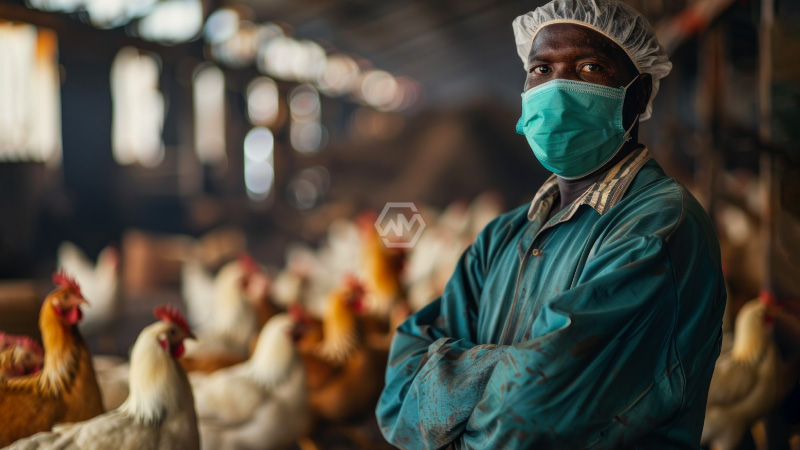- Government rolls out first-ever mass vaccination strategy for avian flu.
- Vaccination aims to protect poultry industry and prevent export disruptions.
- Four-pillar strategy includes vaccine control, biosecurity, traceability, and surveillance.
South Africa has initiated its first nationwide poultry vaccination campaign to combat Highly Pathogenic Avian Influenza (HPAI), a virus that has devastated bird populations and crippled the poultry industry.
The Department of Agriculture emphasized that only registered vaccines will be used and distributed under strict protocols. The government has already approved three H5 vaccines, with H7 still in development.
Bird Flu Battle Begins: SA’s Bold Poultry Vaccination Strategy Unveiled
Deputy Director-General Dipepeneneng Serage presented the strategy as a balanced response to the growing risk of HPAI, particularly during South Africa’s winter migration season. The virus, spread by wild birds from Europe, threatens both domestic flocks and the national economy.
The strategy introduces a centralised system for vaccine access, traceability, and enforcement. All vaccinated flocks will be tracked to maintain integrity in both domestic and export markets, while high-risk areas and commercial farms are the immediate focus.
Minister John Steenhuisen confirmed that early implementation would protect livelihoods and preserve South Africa’s reputation as a food exporter. Biosecurity upgrades are being encouraged across all farms to create layers of protection beyond vaccines.
In 2023, the poultry industry suffered staggering losses, with over 9.6 million birds culled. The vaccination rollout is expected to prevent such large-scale damage, stabilising the supply chain and protecting consumer prices.
With immediate rollout plans and strong industry backing, South Africa’s bird flu vaccination strategy is set to be a game-changer in safeguarding food security and agricultural resilience.
“My job is to bring science and legislation together and allow farmers to farm without risking anyone’s health.” – Dipepeneneng Serage



